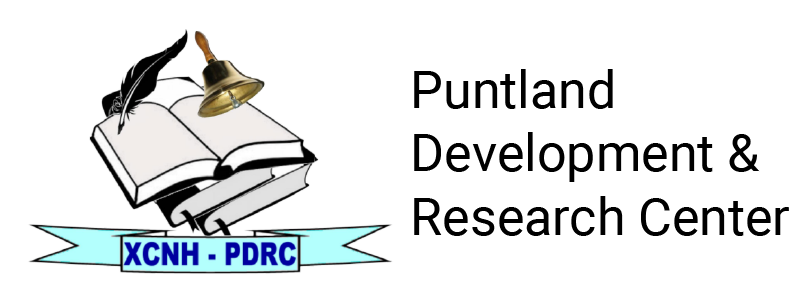The Puntland State of Somalia was founded on the idea of a Federal Somalia with a vision of resource and power sharing and ultimately bring services closer to the citizens through a decentralized system of governance. The Puntland Constitution, art. 120, stresses decentralization by dividing the state into regions and districts. To accelerate the implementation of decentralization system, the first step was to adopt the local government law ‘Law No.7’ in 2003.
According to Law No.7, Puntland is made of nine (9) regions with 54 districts. The districts are categorized into A, B and C, and under the districts, there are settlements and villages. Since the Law was enacted, several milestones have been achieved including the establishment of the decentralization champion office, and Puntland decentralization policy with support of local and international partners especially the United Nations Joint Programme on Local Governance (UN- JPLG).
In 2005, the first local council was set-up in Puntland through a clan-based model where clan leaders in respective districts nominated council representatives. Despite all the successes towards governance and devolution of power to local authorities, there are still challenges facing Puntland decentralization process including clan- based nomination local councilors, financial constraints, low citizens’ participation, and districts proliferation (PDRC, 2015). Moreover, the proliferation of districts has been coupled with dysfunctional district structures mainly crippled by limited finance and low levels of inclusivity in governance. After several failed attempts towards Puntland’s democratization process, 25th October 2021 marked a new historical move. Successful local council elections were witnessed in Qardho, Eyl and Ufeyn districts which are categorized under A, B and C respectively. Therefore, the 25th October 2021 was a historic day in Puntland when the electorates of these districts stood in long queues to vote in the first direct local council elections of one- person -One vote since 1968. A total of 46,839 voters were registered in these three districts where 23,707 (50.8%) were female and 59.4% were the youth between 18 to 30 years old.
These were voted from various political associations especially Kaah, Justice and Equity and Mideeye. It was a symbolic election and an important step towards universal election throughout the Puntland State as well as Somalia. The election was a pilot phase designed to train both citizens and authorities to exercise conducting a universal suffrage with resource and capacity constraints. The plan is to conduct local council elections in all the districts of Puntland. It should be noted that despite exercising its mandate to declare successful candidates in the early election districts, the Transitional Puntland Electoral Commission (TPEC) found a roadblock when there was a delay to swear in the elected local councils in all the three districts. Although they had been democratically elected, it was difficult for them to exercise their duties before being legitimized by the swearing in process/ norm.

